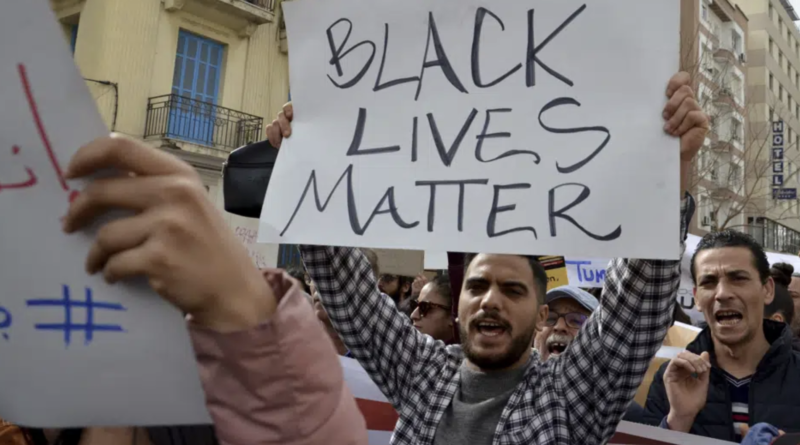Black Lives Matter: Tunisia’s Episode
Amid an increase in racist attacks and controversial comments by Tunisia’s president, Kais Saied, Sub-Saharan African migrants are leaving the country. Saied denies that his remarks were racist, but they have sparked an uproar and criticism from the African Union. This has sparked many Tunisians to adopt the black lives matter campaign and reject the president Saeid’s views. The president has been a polarizing figure in Tunisian politics and has been accused by his opponents of dictatorship. His latest controversy adds to his previous ones like an EU unionist, holding a low turnout elections, and suspending the legislation body.
Last week, he called for urgent measures against “hordes” of sub-Saharan migrants, describing the migrant influx as a conspiracy to change the country’s democratic makeup. Tunisian security forces were urged to halt illegal immigration.
Many African students and migrants have been targeted in arbitrary arrests, physical attacks, and slurs, including on social media. Reports indicate that Sub-Saharan African workers are losing their jobs and getting kicked out of rented homes. Black Tunisians, who make up about 10% of the country’s population, are also targeted in racist attacks. As a result, many migrants want to leave the country.
According to Salsabil Chellali, Tunisia’s office director for Human Rights Watch, racism is not new in Tunisia, but the president’s statements have inflamed things. The president’s recent actions have also shown his willingness to toughen the tone against his opponents and his desire to rule alone. Human Rights Watch has called on Saied to halt the crackdown against judicial independence and reinstate dozens of magistrates and prosecutors who were dismissed or fired for various reasons, including alleged corruption.
The controversy surrounding Saied is not new. He grabbed far-reaching powers in 2021, dissolving the country’s democratically elected parliament. A new parliament is set to take office later this month with vastly reduced powers in a country that was once an Arab Spring champion. Tunisian authorities have detained or sidelined a raft of critics, including journalists, opposition politicians, and civil society activists. Both Washington and the European Union have expressed concern about recent developments, but Saied has rejected what he calls foreign interference.
